***
WOW: I read an interview of yours where you had described how when you were nine-years-old, you were truly afraid of thunder. At that time, your father, the psychiatrist, said that he thought you might be a little mad, and at first you thought he was insane, but then you realized 'he was right'. You hadn't planned on being scared of thunder, you just were. Somehow, this resonated with you, and you related it to a strong connection with your 'unconscious.'
 When I read that, I immediately thought of my cat. When there is heavy wind or thunder, she is deathly afraid and doesn't understand it. Could this feeling you had be more of a primal instinct than that of the unconscious? Or do you think that the two are the same? When I read that, I immediately thought of my cat. When there is heavy wind or thunder, she is deathly afraid and doesn't understand it. Could this feeling you had be more of a primal instinct than that of the unconscious? Or do you think that the two are the same?
Aimee: Interesting question! It's hard to know, because although I also have a cat, I don't know much about the rules of animal behavior. I think it is different, though. That in an animal, it is more of a basic fear instinct like you say, and for me, with the thunder, it was a metaphor, a projection of a feeling in me onto something else, the same thing that often goes into the making of art of any kind, and that seems distinctly human to me.
WOW: Yes, you're right... that is a human quality. I don't think cats are into metaphors... In fact, mine will try and pull my attention away from the book or magazine I'm reading, all because she can't read herself!
 Which in fact proves your point. I guess I'm projecting my human feelings onto my cat, in saying that she's jealous. But this thunder, for you, symbolized your anger at someone, and when you realized that, your fear was released. How important do you think it is to release these feelings through talking? Or do you just save them for writing? Which in fact proves your point. I guess I'm projecting my human feelings onto my cat, in saying that she's jealous. But this thunder, for you, symbolized your anger at someone, and when you realized that, your fear was released. How important do you think it is to release these feelings through talking? Or do you just save them for writing?
Aimee: I think both are useful-talking is crucial, and writing releases them in a different way. I know some people worry that if they talk about their worries, nothing will be left for their writing. But the human mind is so complex and full of depth! I just don't think we could ever figure it all out. So there's plenty left for writing.
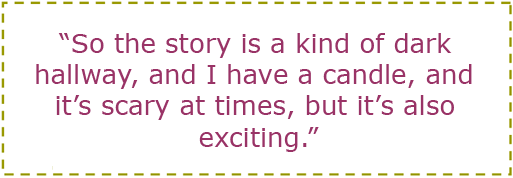
WOW: What would you say is the difference between the subconscious and the unconscious?
Aimee: Not sure-I think Freud titled it the unconscious, so I use that word; I think it's used more often in psychological circles, and due to family/friends/experience, that's the word I use.
WOW: I like that word... it evokes a deeper meaning.
 So, after you've written from your unconscious, how much editing do you do? So, after you've written from your unconscious, how much editing do you do?
Aimee: Lots and lots. I reread stories and scenes over and over, and if I continue to be interested in rereading them, I do it until I feel satisfied that they're ready for a reader.
WOW: That's the hard part for me, or any writer, I think. Knowing when to call something 'finished.'
 How do you know exactly when a story is done? Do you have an editor or writing group that helps you? How do you know exactly when a story is done? Do you have an editor or writing group that helps you?
Aimee: I do have a group that is helpful, but it usually works best when I give them something that feels nearly done to me. So then the workshop is about the subtleties. If I don't really know if it's done, I tend to sit on it for awhile more. Some stories take a few years to find an ending! Like I have to live my way into the ending somehow.
WOW: Hah! That's funny you should say that... I have a story sitting on the backburner right now, simply because I'm waiting for life to sort it out. But the beginnings seem to start off in a fireball!
 That's what I see in your writing... often your first sentence paints a picture of its' own. How important is the first sentence of a story to you? That's what I see in your writing... often your first sentence paints a picture of its' own. How important is the first sentence of a story to you?
Aimee: I try to let my experience of the story mirror the reader's, so the first sentence is very important to me, because it may need to launch me, the writer, into the story just as I'd hope it would launch you into it as well. Then, if it's a line that has something to it, some umph, clear or buried, I get interested in writing forward, and seeing what happens next.
WOW: That reminds me... I think it was the PIF interview, when I read how you described writing a story, it made me see you as your story...you're a baby and looking with wonder at all these moving parts...discovering... Then I realized I was describing myself. How would you describe yourself in relation to a novel or story you're writing?
Aimee: I guess when I'm in my most productive mode, I'm curious. I'm intrigued by what this thing is, and where it's going, and I'm following it out of my own curiosity. So the story is a kind of dark hallway, and I have a candle, and it's scary at times, but it's also exciting.
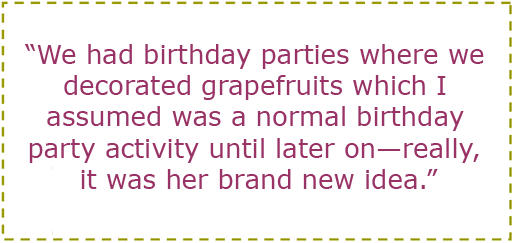
WOW: Most publishers and agents say that it is hard to sell a collection of short stories these days. Was it hard for you when you started shopping your short stories around?
Aimee: I had to fight for it a bit-I had a done collection and a novel in progress, and my editor gave me a two-book deal, which was thrilling, but he wanted to put the novel first. I didn't even know at that point if I would even be able to finish a novel, and I had this book of stories ready to go, ripe, I felt, so I talked it over with my agent and we said we'd only take the deal if he switched the order. I felt good about that-it just made some kind of sense to me. And he switched it, and I think it was the right move without a doubt.
WOW: What or who encouraged you to write?
Aimee: I felt encouraged by my family-my mother teaches dance and choreographs, so creativity was a big part of my upbringing. We had birthday parties where we decorated grapefruits which I assumed was a normal birthday party activity until later on-really, it was her brand new idea. My sister liked writing, I liked writing, my teachers gave us writing assignments which I loved. I have a close friend who put a piece I'd written on her wall in her freshmen dorm, which shocked me-that she'd want to read it so much. So all that was wide open; I did feel encouraged. And still! It was so scary and difficult for me to think I could take it seriously, could pursue it.
WOW: Well, we're sure glad you did pursue it! And wow, your mom sounds fun! I have to try that at my next birthday party. How did you decorate your grapefruit?
Aimee: But of course! I think with gumdrops?
WOW: How did you make the jump from writing to being published?
Aimee: I sent out stories for years, from around when I was 24 and on. A slow process. But it did shift, as my stories became more mine, more specific to me-then finding homes for the stories became easier.
WOW: That reminds me of something Cynthia Kadohata said: "The more specific, the more universal." And like you said, as your stories became more yours, it became easier for you. How important is voice to you?
Aimee: Voice is central. Crucial. And yes, based fully in the particular.
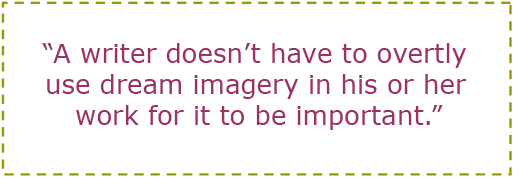
WOW: Can you describe your writing process?
Aimee: Get up, check email, then sit down for two hours and write, no interruptions, no phone, yogurt okay, sitting and staring into space is okay, but I cannot cut the time short. Or long. I believe, very strongly, in the usefulness of a regular routine.
WOW: Your right, routine is important, but on the opposite side of the spectrum, I happen to know that you believe in the usefulness of dreams as well. How important are dreams in your writing, and what do you think dreams really are?
Aimee: I think they're the same thing, the same fabric of writing, just in a different shape and done at a different time. They cannot be overvalued, to writing in general-dreams hint at a vaster life beneath the surface of our daily routines and how this life finds its way into fiction is up to the writer. But dreams do relate to fiction. Even John Updike, who is quite a realist, goes to sleep and dreams for hours and who knows how that influences his work. A writer doesn't have to overtly use dream imagery in his or her work for it to be important.
WOW: As a Professor at USC, you teach fiction-writing workshops with an intimate limit of 10-12 students at a time. This must allow you to work with your students in a hands-on environment.
 Since we know you're an advocate of the arts and expression, how much structuring do you do with your students in the classroom? Since we know you're an advocate of the arts and expression, how much structuring do you do with your students in the classroom?
Aimee: They're actually larger-16-18 at a time for the undergrads. I structure it quite a bit; I'm a fan of structure, as is apparent, I think! I give lots of weirdly structured exercises, as a way to take pressure off. The workshop itself is pretty structured-I like to have students read out sentences they liked at the end, to remind everyone about the importance of the word-level choices.
WOW: I'm a big fan of Murakami and I know you had some of his novels in your curriculum. What draws you to his work? And which book is your favorite?
Aimee: Oh, he's just wonderful. The Wind-up Bird Chronicle is still my favorite-it seems to be the most layered. It is just plain haunting. I love how he lets plot unfold. How one event will lead to another, unexpected event. And yet there is some kind of logic that links the two events together. Plot, plot, plot. That is why I read Murakami-but his plots are so extraordinary that it's all about the organic way he lets the story grow.
WOW: Your right, his stories do seem organic. There's this sense when you read them like you're right there, discovering with him, growing with him. Did you ever read Hard-Boiled Wonderland and the End of the World?
Aimee: I did-I liked it a lot, but Wind-Up Bird and then Wild Sheep Chase are still my favorites. Something about the one plot works best for me, with his stuff.
WOW: That seems to be the popular opinion. I guess I'm just drawn to that book because it was the first Murakami book I read. Although, I have to say, I equally love The Wild Sheep Chase.
 For some reason, there seems to be a major difference between American writers and foreign writers in terms of novel writing. What do you think that difference is? For some reason, there seems to be a major difference between American writers and foreign writers in terms of novel writing. What do you think that difference is?
Aimee: I think American writers are tidier, sometimes. Foreign writers seem to have a little more freedom with structure and mess. Which I like. Though lately, there's been more room in American fiction for a kind of sprawling nature, inside a sentence or in a whole book. Also there tends to be more magic in foreign writing, but happily, it also seems like magic is present in a lot of American writers today-Kelly Link, George Saunders, Judy Budnitz.
WOW: Ooh, I love Kelly Link's story, "Stone Animals." It's so wonderful when you read a story and you have no idea where it's going to end up. That's what I think is amazing about your writing as well. When you're writing, do you know where your story is going to end up?
Aimee: Thanks-and no. I think that may be the whole reason, or a big reason, why I write-for the joy of not knowing. Of discovery. Because so often I want to know, know, know! And it's a good reminder that knowing isn't always the most interesting route to something.
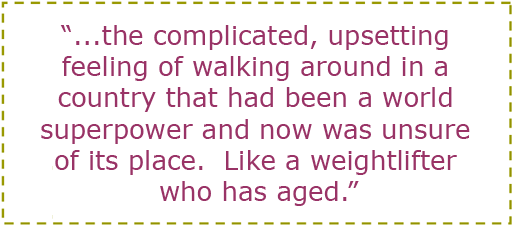
WOW: Aimee, you had the privilege of being in Russia, we're jealous; that aside, what did you bring back that customs couldn't see because it had become a part of you?
Aimee: Nicely put! I think it was some historical perspective; I grew up during the Cold War, in the 70's and 80's, but in a way, nothing brought it home more than being in Russia, and the complicated, upsetting feeling of walking around in a country that had been a world superpower and now was unsure of its place. Like a weightlifter who has aged. I found it very hard to be there, after awhile, because the contradictions were so layered. That said, I really do recommend the program- sumlitsem.org -it's amazing to go listen to readings at Nabokov's house!
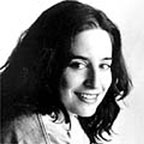
|
"...I just don't think fiction is about getting things right." |
WOW: I've read close to fifty books on the craft of writing. Many of them share the same views on plot, character, structure, and realism. Did you ever read these kinds of books and doubt your writing before you were published?
Aimee: Yup. I mostly hate those books. They suck out what I like about writing which is that it's unpredictable. They make me worry about getting things right, and I just don't think fiction is about getting things right.
I had to laugh right here and thank Aimee for speaking her mind! She truly confirmed what I've always thought in secret.
WOW: I've read The Secret Society of Demolition Writers and thoroughly enjoyed that book! How did you get involved in the society?
Aimee: It's a very fun idea; the editor contacted me through my agent, and I was glad to be with that group. He was so enthusiastic, and it was easy to jump onboard because of that.
WOW: Okay, fun question: since this issue is called, "Author's Staircase," what does your fantasy staircase look like, and where does it lead?
Aimee: Iron railing, wood planks, curving up, in a spiral to some kind of balcony/bridge that is delicate but can handle people and leads somewhere wonderful.
WOW: Thank you Aimee, this was really fun! I'm sure all of our readers will want to check out your latest book, Willful Creatures and peruse your website.
***
Aimee Bender's Website:
https://www.flammableskirt.com
Stop by and sign Aimee's guestbook! |